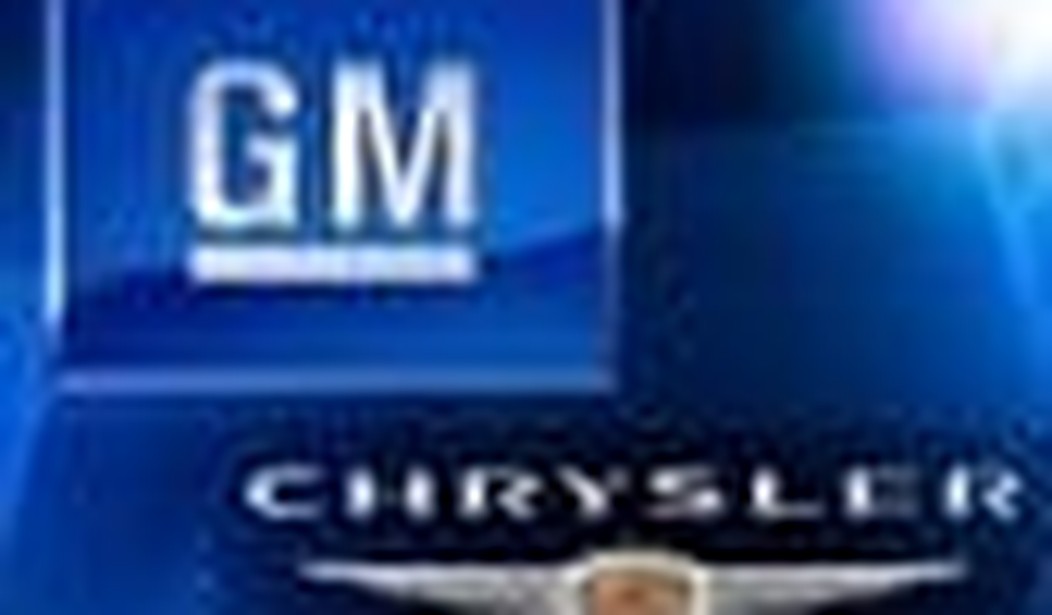There is little doubt that the majority of voters oppose the bailouts and the seemingly endless cascade of calls for more that have been raining down since early October. That’s when Treasury Secretary Hank Paulson panicked and blackmailed Congress and the president into passing what I have been calling the giant SUCKUP — the Seemingly Unlimited Cash Kitty Under Paulson.
Now, in a development that anyone with an IQ above room temperature could have predicted, the Paulson gang “has now spent or committed more money than Congress has allocated to its financial rescue program, effectively making more promises than it can afford to keep. … Congress gave Treasury $350 billion; Treasury has allocated $354.4 billion.” The same guy who (figuratively) put a gun to the heads of bankers to force them to take Uncle Sam’s bailout money — whether they thought they needed it or not — is now putting a gun to the heads of taxpayers.
Most taxpayers probably believe that Congress has to proactively approve the release of the second half of last fall’s $700 billion bailout package. Wrong: “Once Treasury submits a formal request, the money will be allocated by default unless Congress votes to prevent it.”
Now that the spigots have been opened, the bailout requests just keep on coming.
After the banks came General Motors and Chrysler. California’s Governor Schwarzenegger, the Terminator turned Begginator, who years ago abandoned the heavy lifting involved in reforming his state’s dysfunctional political culture, “has ramped up his requests for a federal bailout.” I would suggest that California really owes the rest of us a bundle, not only because the formerly Golden State has been overspending on traditional welfare, i.e., direct aid to individuals and families to the tune of over $2 billion a year during Schwarzenegger’s entire term in office, but also because the state refuses to create oil-drilling and related jobs that could help turn its, and the nation’s, economy around.
Cities like Philadelphia, Detroit (it alone wants $10 billion), and Atlanta are lining up. Now we have a group of states, “led” by Ohio Governor Ted Strickland, asking for $1 trillion of their very own.
This only scratches the surface. I can’t pretend that the following is comprehensive, but others in the bailout line include auto industry suppliers, General Motors Acceptance Corporation ($5 billion, separate from the bailout money granted to the auto company), retailers, commercial property developers, and two local newspapers in Connecticut.
How bad is it? It’s so bad that when blogger Warner Todd Huston invented a story about how a mythical accountants’ consortium named BANAL (the Bureau of Accountancy and the National Accountants League) had requested a government bailout, Business Week believed it.
But let’s get back to the serious matter at hand. What are those who oppose these bailouts to do?
No matter how hard I try, I can’t get around an inescapable conclusion.
I did consider other alternatives before reaching it.
Boycott the banks? Forget it. Paulson’s “gun to the head” posse ensured that all the big players, and the vast majority of smaller ones, received bailout money (here is one notable exception). Maybe fear of consumer flight to banks not bailed out drove his decision.
Stop paying taxes? Not realistic.
Throw the bums out in Washington? Too late, and we can’t wait two years. By that time, the sheer number and volume of bailouts will have created a permanent culture of bailout dependency.
Though it’s an imperfect and in a sense unfairly targeted response, there really is only one action the average person has available that is practical and will be quickly understood by the powers that be: not buying GM or Chrysler vehicles.
It’s not like the two monumentally mismanaged companies and the thoroughly corrupt United Auto Workers union aren’t deserving of our scorn. What’s more, for those who insist on buying American, there still is a U.S.-headquartered alternative. Ford has made a lot of mistakes, including losing about $1 billion in profit margins by failing to respond for two years to a damaging boycott by a social conservative group. Nonetheless, and to the surprise of many, the company isn’t circling the drain and decided not to take Uncle Sam’s money. Perhaps if enough GM and Chrysler business heads their way, it never will.
Don’t be surprised if many Americans haven’t already reached the same conclusion I have. A Rasmussen poll showed that Americans opposed the GM-Chrysler bailout by a margin of 49%-38%. If even a third of those who opposed it swear off their cars, there will be no recovery at the two companies.
We’re not quite to the point where Hank Paulson can point a gun to our heads and force us to buy certain companies’ cars. If it becomes clear in Washington that consumers have shut their wallets on GM and Chrysler, that bailout effort will be forced to an ignominious end. It will send the two companies into bankruptcy, where they can figure out how to emerge as viable, baggage-free entities.
Most importantly, widespread refusal to buy GM and Chrysler vehicles will also send a clear message to other private entities considering whether or not to seek bailouts, and to politicians considering whether to approve them: Don’t.









Join the conversation as a VIP Member